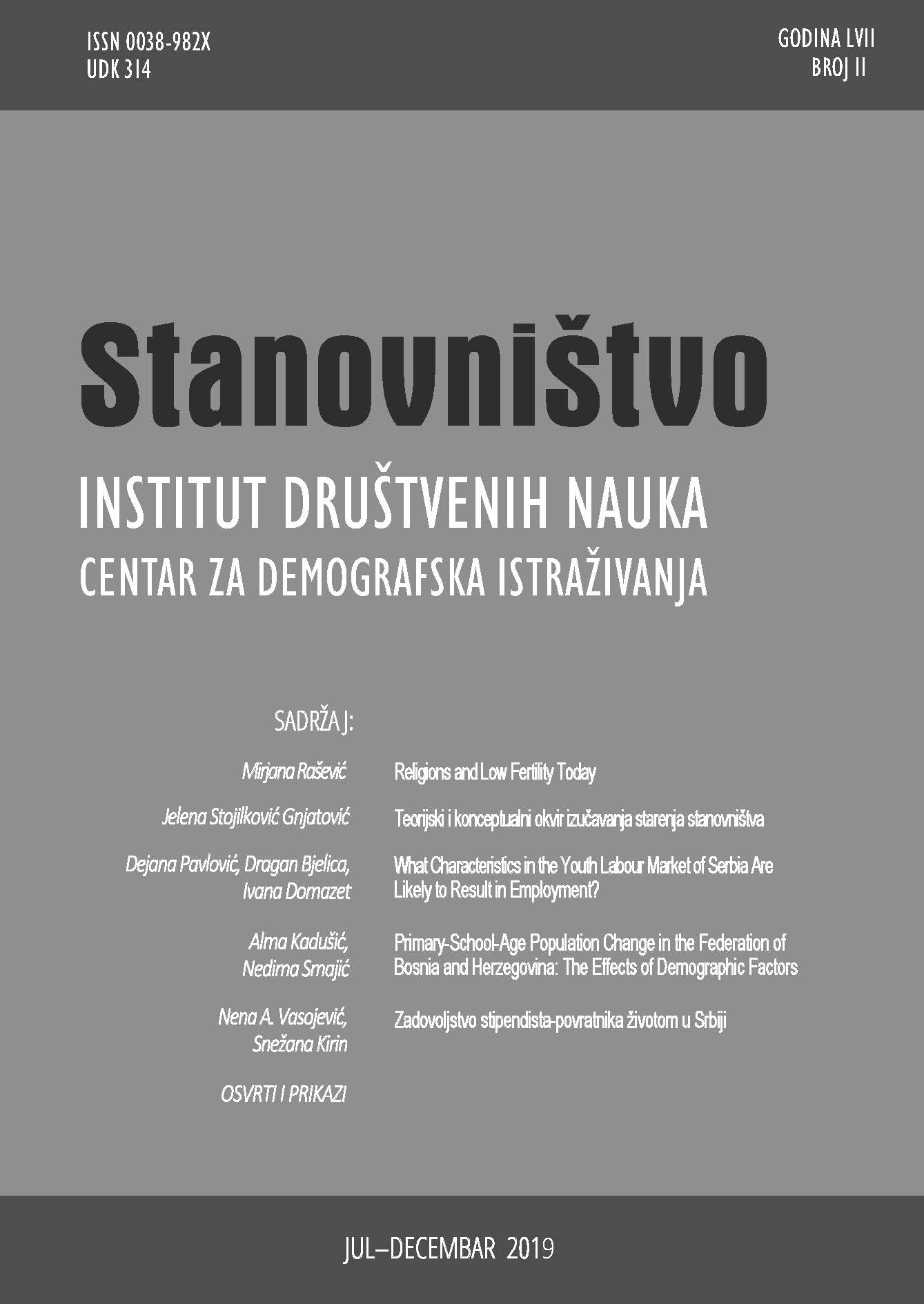Zadovoljstvo stipendista-povratnika životom u Srbiji
Life Satisfaction of Returnee Scholarship Holders in Serbia
Author(s): Nena A. Vasojević, Snežana KirinSubject(s): Higher Education , Demography and human biology, Migration Studies, Social Norms / Social Control
Published by: Институт друштвених наука
Keywords: scholarship holders; returnees; education; job satisfaction; life satisfaction
Summary/Abstract: Educated and talented people drive progress in every country. That’s why no country can neglect these people; that would mean losing one’s own potential. This paper emphasises the importance of educating scholarship students abroad as a means of developing and accumulating human resources and a key determinant of sustainable development in the modern world. Investing in the education of the best students (scholarship holders) is an investment in the future, which brings multiple benefits on a social, economic, and political level. Migration is an important phenomenon that attracts public attention, especially when it comes to highly educated experts leaving their home country in search of better education. Highly educated experts have been leaving Serbia for several decades, which poses an obvious problem for local society. The topic of permanent migration is dominant both in foreign and domestic literature, but studies on the temporary migration of highly educated students (scholarship holders) is almost nonexistent. The aim of this paper is to point out the value of returnee scholarship holders and the importance of creating the appropriate conditions for them to stay in the country.A survey conducted on a group of 96 returnee scholarship holders identified factors that affect their satisfaction with living in Serbia. The survey involved experts from Serbia who were educated abroad as scholarship holders, where they acquired academic titles and are now employed: as faculty teachers (32); as researchers at scientific institutes (24); in the private sector (21); at universities (12); in state administrative departments (5); and in medical institutions (2). The criterion for selecting this group of respondents was that they had stayed abroad as scholarship holders, whether they used scholarships from domestic (24) or foreign (72) funds. Scholarship students go abroad mostly because of their personal aspirations for training, gaining new experiences, and because of the inability to study the desired discipline in their country, as was the case for 74 respondents. The main reasons for deciding to return are family (25) and the belief that they have a good chance to work in Serbia (18), while 16 respondents could not stay abroad.In this paper, we used the factor analysis method. The main factors that create satisfaction with life in Serbia are isolated. These factors are: satisfaction with work and a set of factors that strongly correlate with it (the ability to make decisions, the implementation of acquired knowledge, peer acceptance), as well as the recognition of their diploma in Serbia without any difficulties. By improving these factors, there might be a significant increase in the chance that returnee scholarship holders remain in Serbia for a long time. Based on this, it would be wise to build a strategy on how to encourage returnee scholarship holders to stay in the country. The results obtained in this study represent a contribution to a search for a strategy that will attract, involve, and retain educated people in the country.
Journal: Stanovništvo
- Issue Year: 57/2019
- Issue No: 2
- Page Range: 71-86
- Page Count: 16
- Language: Serbian

